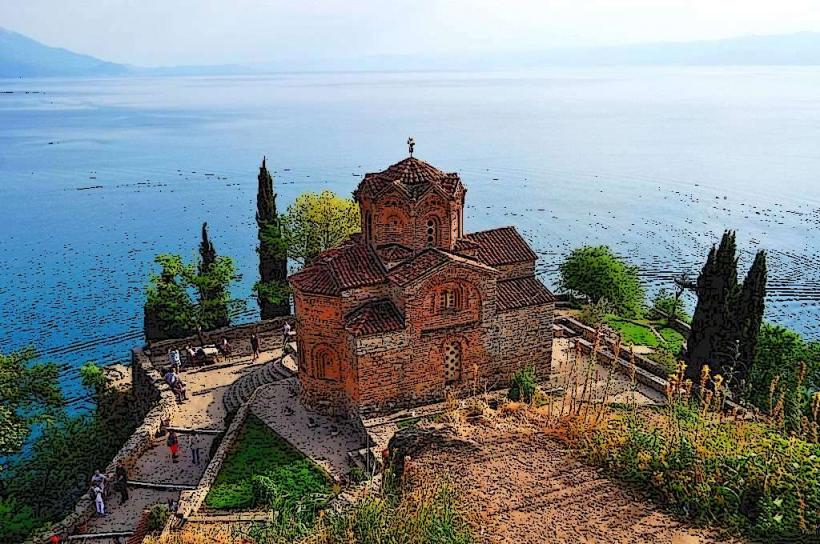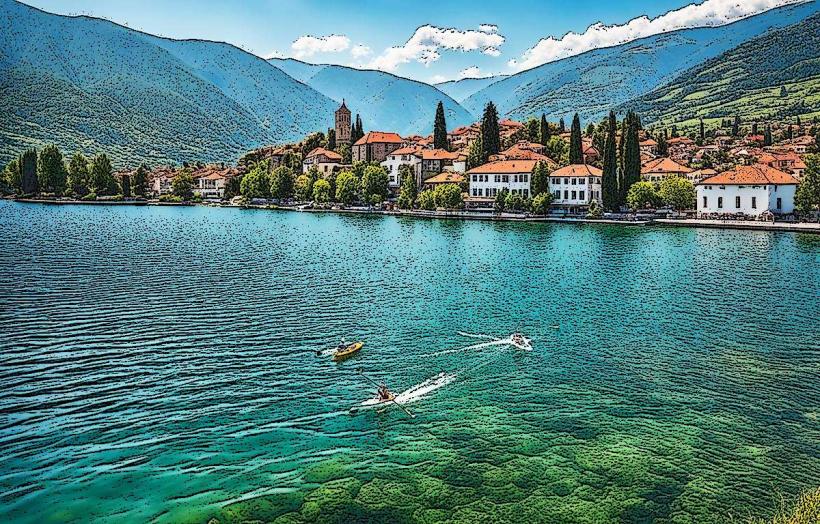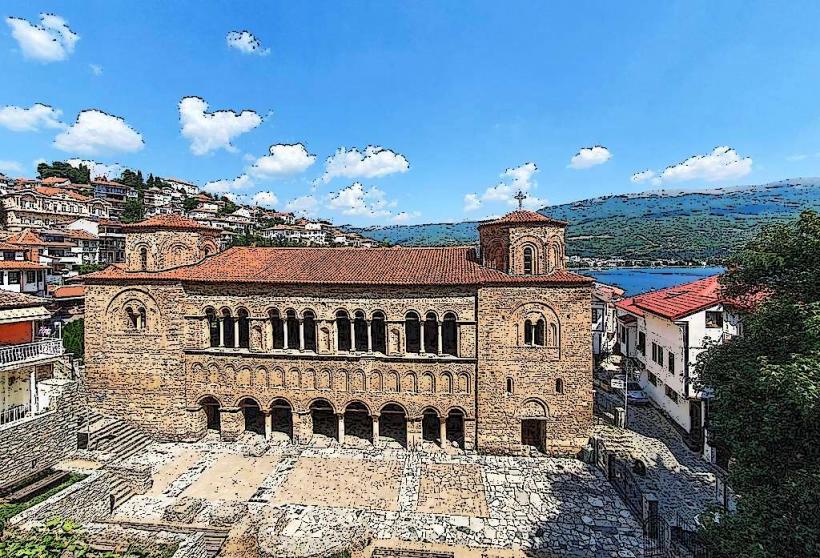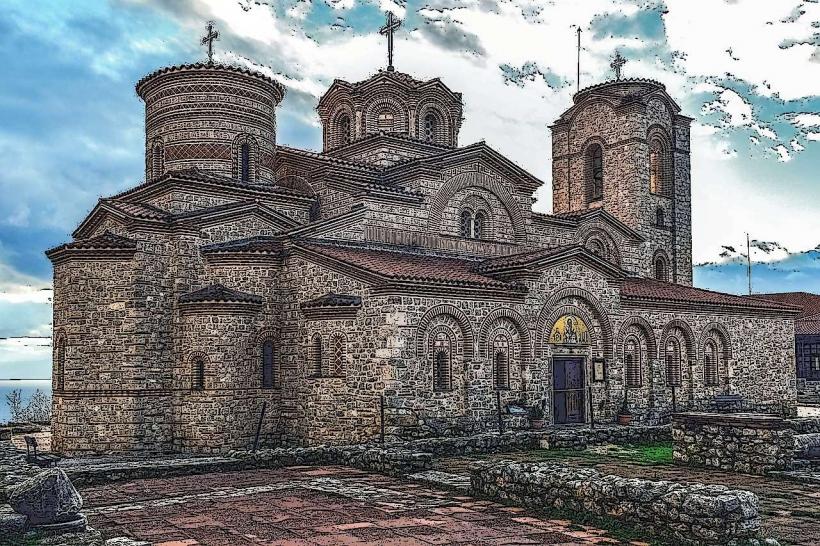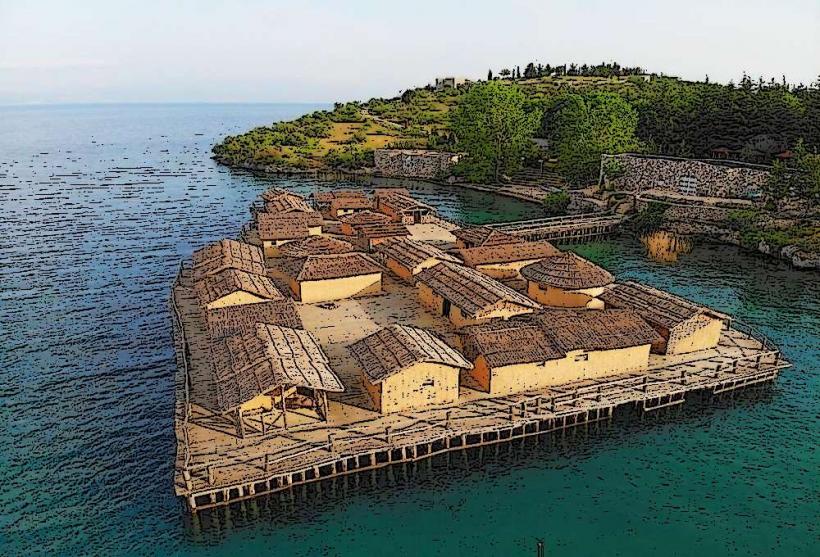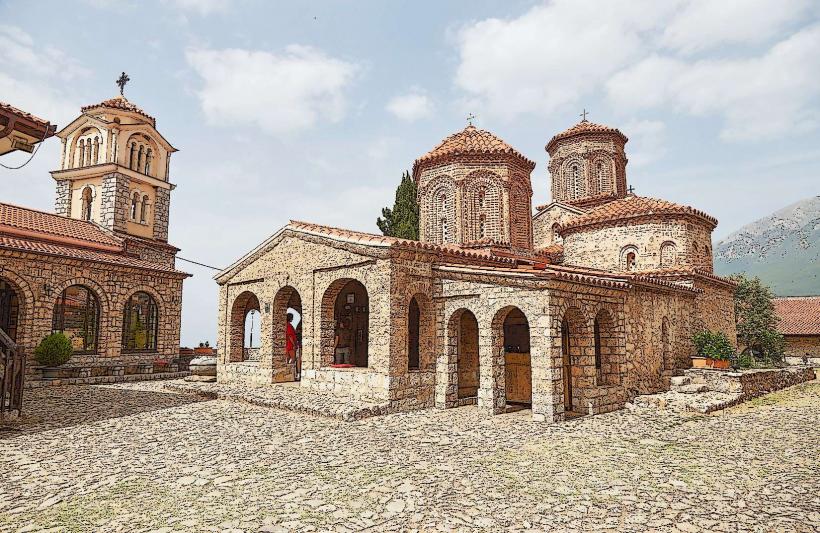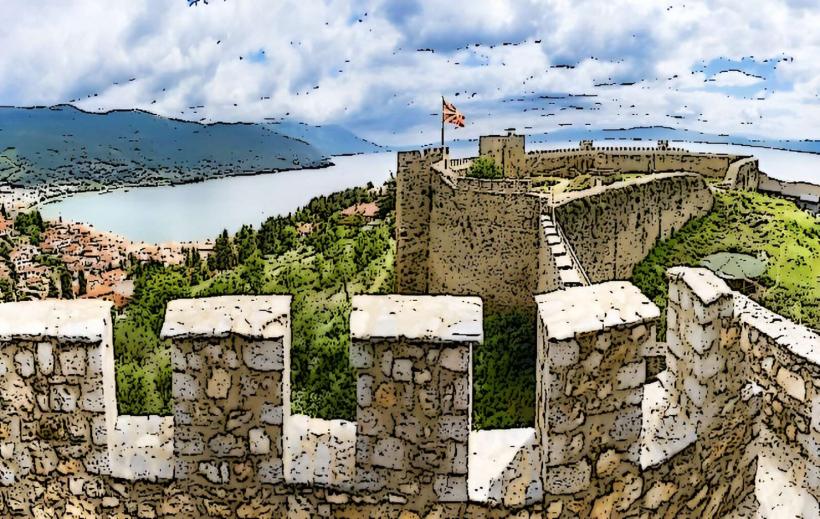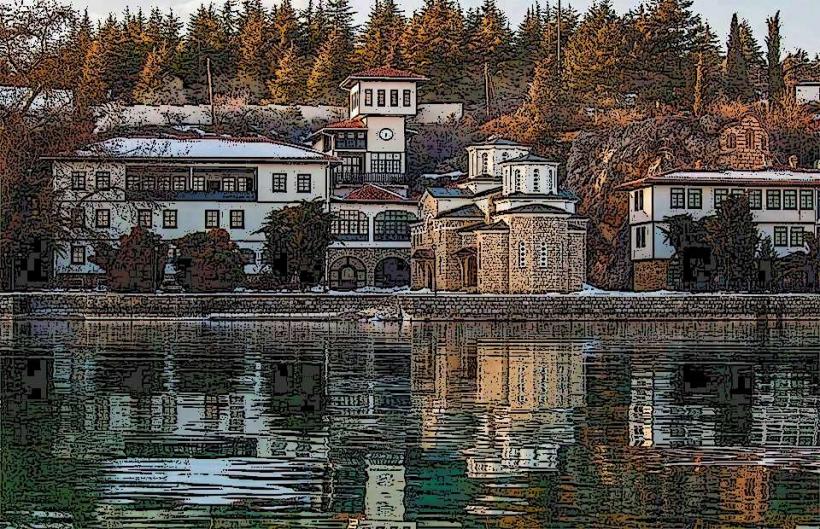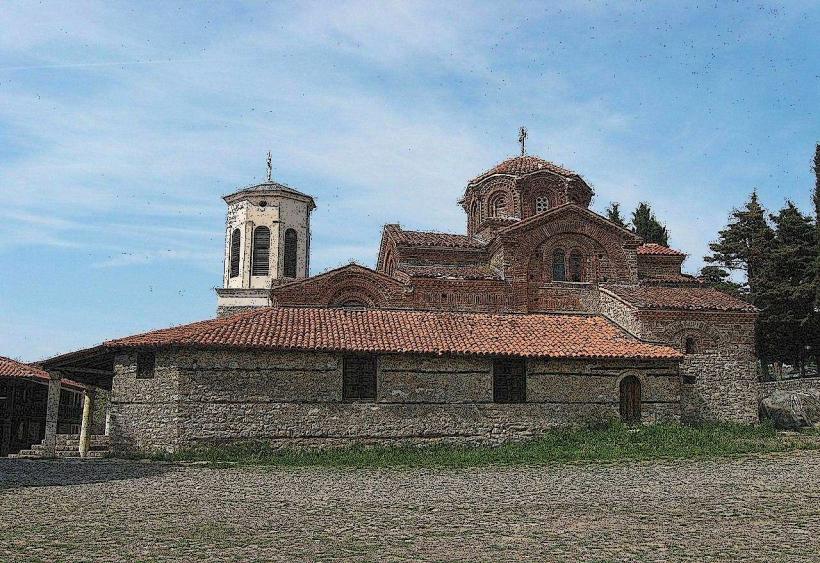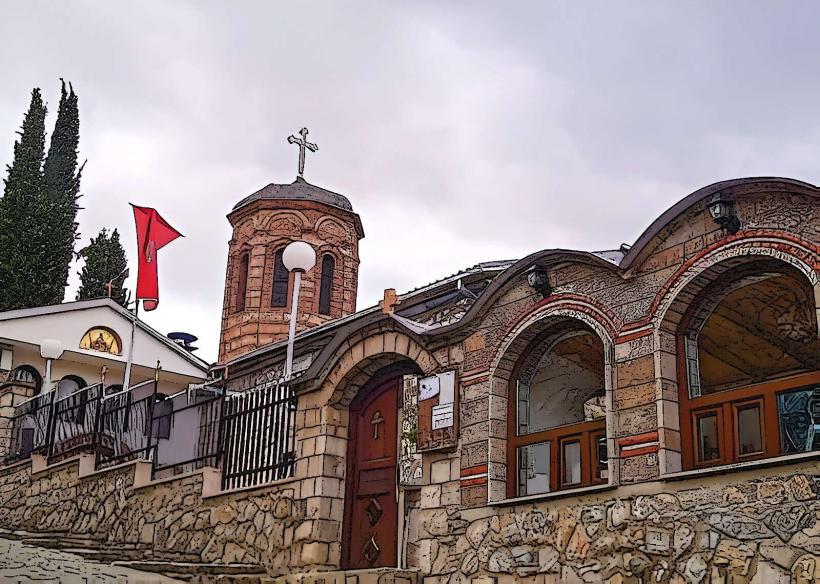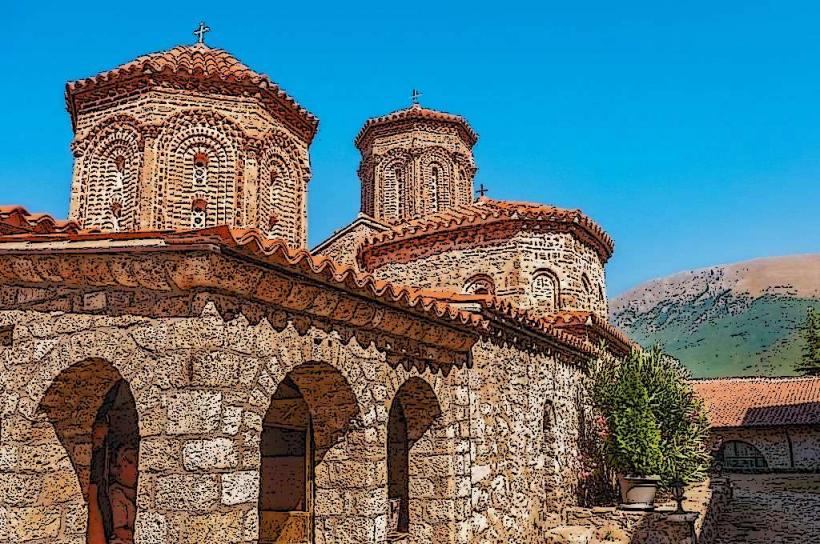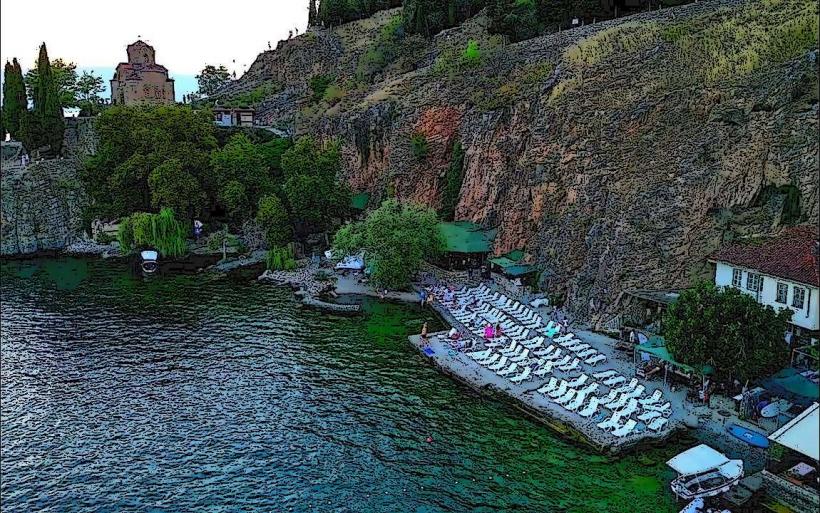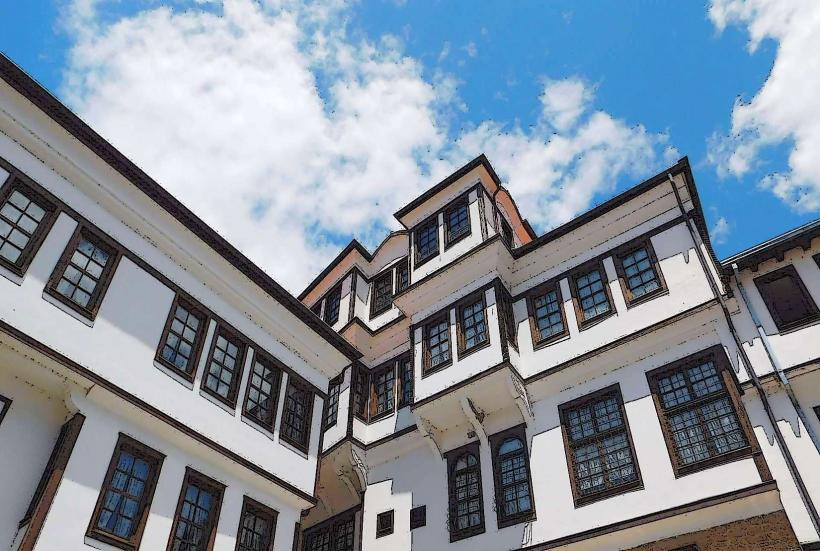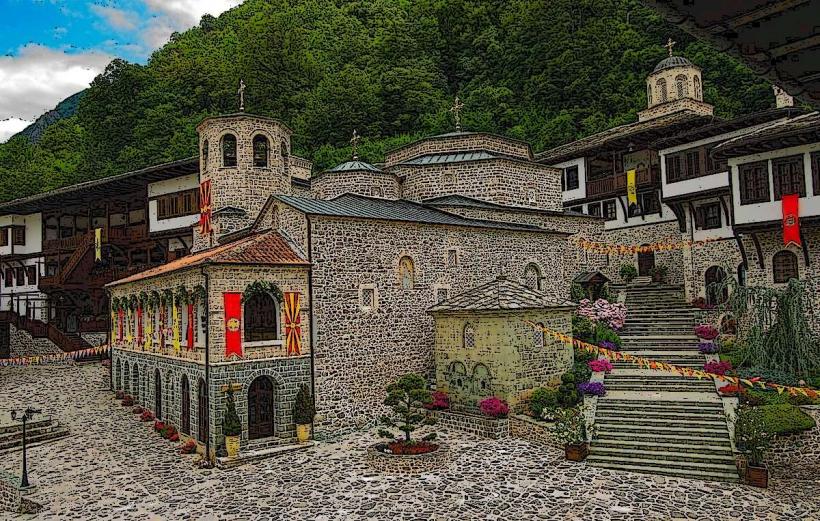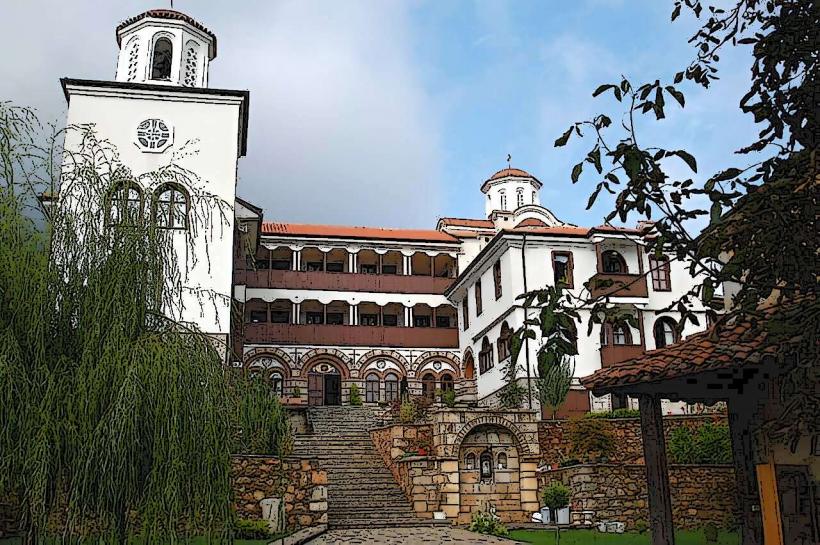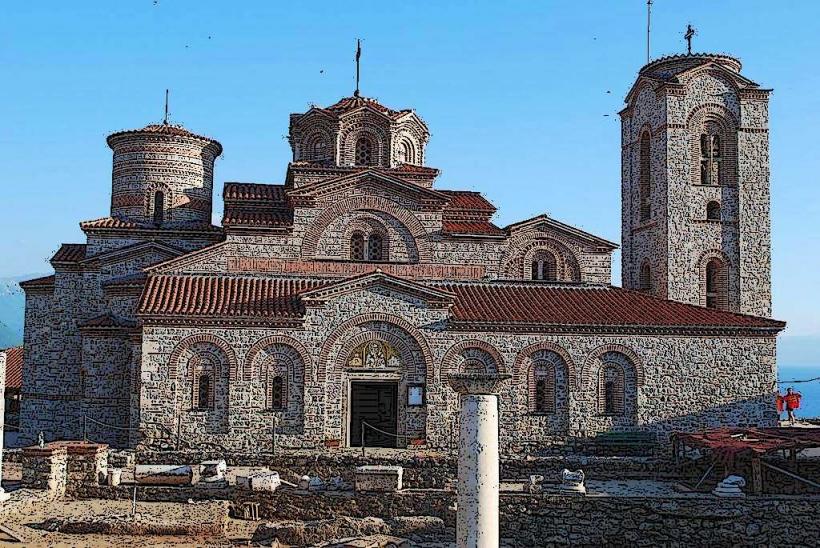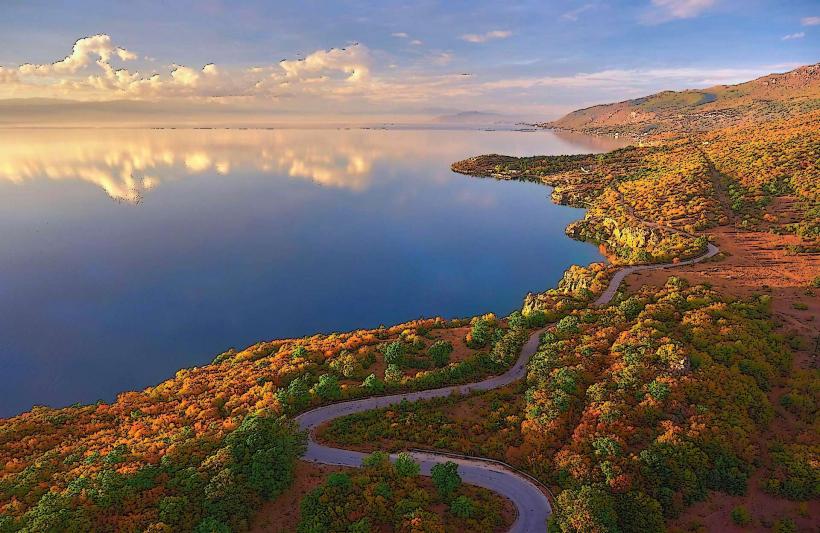Information
Landmark: Ohrid Fortress (Kale)City: Ohrid
Country: North Macedonia
Continent: Europe
Ohrid Fortress (Kale), Ohrid, North Macedonia, Europe
Samuel's Fortress (Ohridski Kale) is a medieval fortification crowning the highest hill of the Ohrid promontory in North Macedonia. It served as the capital of the First Bulgarian Empire during the reign of Tsar Samuel in the late 10th and early 11th centuries, providing a strategic defensive position over the city and Lake Ohrid.
Visual Characteristics
The fortress is defined by its massive stone curtain walls, which extend for approximately 3 kilometers and reach heights of up to 16 meters. The masonry consists of rough-cut limestone blocks and mortar, featuring 18 rectangular and circular towers along the perimeter. The restored battlements and ramparts follow the natural contours of the cliffside, enclosing a central citadel that remains largely an open archaeological plateau with exposed foundation walls.
Location & Access Logistics
The main entrance is via the Upper Gate (Gorna Porta) at the northern edge of the old town. It is accessible by a 20-minute uphill walk from the Ohrid Port or a 10-minute walk from Plaoshnik. Vehicle access is restricted to light traffic on narrow residential streets; visitors typically park at the public lot near the Ancient Theatre and proceed on foot. There are no direct public bus lines to the summit.
Historical & Ecological Origin
While fortifications existed on the site as early as the 4th century BC during the reign of Philip II of Macedon, the current structure is primarily associated with Tsar Samuel, who rebuilt and expanded the fortress starting in 976 AD. The site is situated on a metamorphic and limestone ridge, characterized by karst topography and low-density Mediterranean scrub and pine trees that have colonized the inner courtyard.
Key Highlights & Activities
Walking the perimeter of the restored ramparts provides a 360-degree view of Lake Ohrid, the Galicica Mountains, and the modern city. Visitors can explore the remains of the inner keep and various subterranean cisterns. The site is a primary location for landscape photography and historical study of medieval Balkan military architecture.
Infrastructure & Amenities
The fortress features a ticket booth and a small information kiosk at the entrance. Public restrooms are located near the ticket office. 4G and 5G cellular signals are consistently strong across the summit. Shade is almost non-existent within the fortress walls; there are no food or beverage vendors inside the monument, though several cafes operate 0.3km away near the Upper Gate.
Best Time to Visit
Optimal lighting for photography occurs during the "golden hour" before sunset, which illuminates the stone walls and the lake surface to the west. The site is open daily from 09:00 to 18:00 (extended in summer). Visiting during the early morning (09:00) is recommended to avoid the high temperatures and the peak influx of tour groups during the midday hours.
Facts & Legends
Local tradition suggests that the fortress once had 100 gates, though only the Upper Gate remains fully intact today. A verified historical oddity is that the fortress walls contain "spolia"-stones taken from earlier Roman buildings, including marble inscriptions and decorative elements, which can still be spotted embedded in the medieval masonry.
Nearby Landmarks
Ancient Theatre of Ohrid (0.3km East)
Church of St. Clement of Ohrid (Plaoshnik) (0.4km South-East)
Upper Gate (Gorna Porta) (0.2km North-East)
Church of St. John at Kaneo (0.8km South-West)
Icon Gallery - Ohrid (0.4km East)


